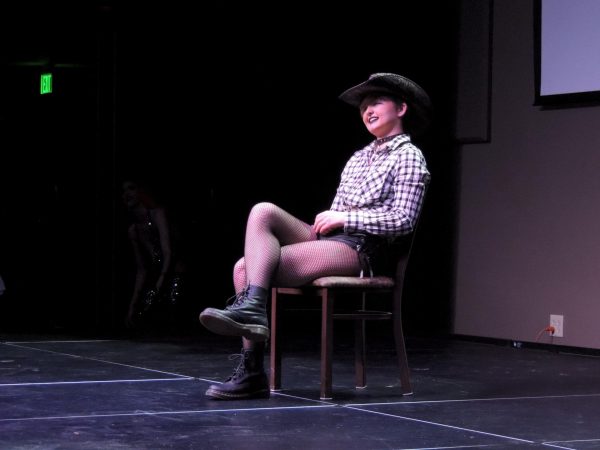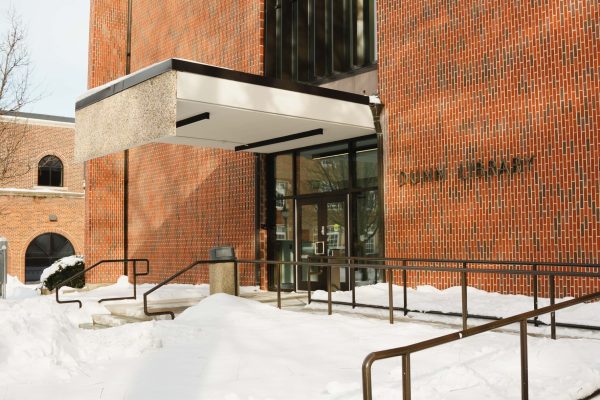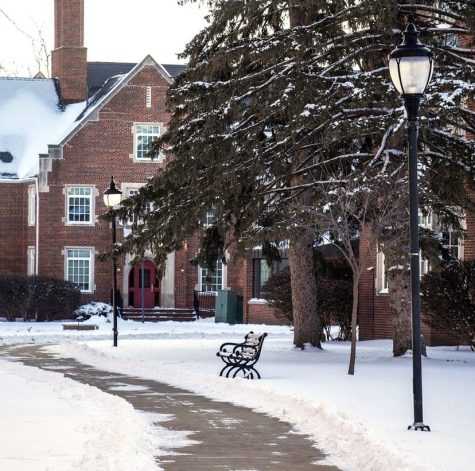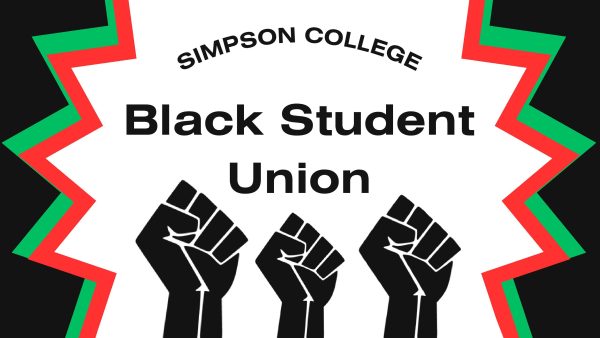Testimonies of two Title IX survivors
Two graduates share how they were treated by the Title IX process.
April 19, 2023
Two Simpson alumni were willing to share their experience with Title IX on campus. Both expressed deep frustration with a system that they felt failed to deliver them justice.
“I believe whole-heartedly that the process was lacking and the support for those who report was minimal,” Alumni Gracie said.
She requested her last name be omitted from this story.
“The institution seemed more concerned with keeping their sexual assault statistics low, rather than ensuring my safety,” the other alumni, who asked to remain entirely anonymous, said.
Gracie felt that the investigation from start to finish was inadequate.
“The Title IX board was negligent in their investigation,” she said.
She also felt that Heidi Levine, who was head of the panel that handled her complaint, didn’t take her seriously.
“During the hearing and in the final letter I received from Mrs. Levine, I was made to feel that I was blowing my experience out of the water and being paranoid,” she said.
At the end of the hearing, no permanent measures were taken.
“With the conclusion of the investigation, the no contact order was essentially shredded and I was told to just let it go,” she said, adding that her abuser went on to sexually assault other students.
While Gracie had entered with optimism, she said the process left her feeling disappointed.
“After my experience, I believe that Simpson is more concerned with the appearance of a safe campus than protecting their students,” she said.
The other survivor had a similar experience.
“I, unfortunately, felt like I was retaliated against and victim-blamed,” she said. “To this day I still deal with severe PTSD from this.”
At the end of her hearing, her abuser was found not responsible, meaning no sanctions were enforced.
“The main reason was that the emotions I displayed during the hearing made me un-credible,” she said.
She added that a police officer who had investigated her case for the Indianola Police Department said that there was no doubt she had been sexually assaulted.
Both survivors also expressed dissatisfaction with interim measures, saying they still felt unsafe on campus.
“When I asked for safety measures I really didn’t get much,” the anonymous alumna said. “I even had to call the cops.”
“Because of the experiences I was having, I had to change my entire life,” Gracie said. “Even then I was concerned.”
They were also frustrated and alleged that their abusers were protected by coaches of the athletic teams they were a part of.
“I wasn’t the first individual to be blown off due to starters seemingly incapable of making mistakes,” the anonymous alumna said. “I was forced to stop participating, but my abuser continues to be a player on the team.”
Gracie’s Title IX experience was in 2018, while the other survivor went through it in 2022. Both said that changes are needed.
“Certain individuals should not hold their positions,” the anonymous alumna said. “At the very least they should be held accountable.”
Gracie thinks that Simpson needs to refocus on survivors.
“Instead of trying to keep the image clean by keeping victims quiet, they should focus on educating their students,” she said.
While Simpson is receiving a grant from the Department of Justice (DOJ) soon, the grant is for prevention not response. How Simpson handles Title IX will need to be reformed by the administration.
The official legal manual of Title IX on the DOJ website only requires that a grievance process be established. It does not specify what that process needs to be, meaning institutions have broad leeway to craft their system.
Keyah Levy, Simpson’s Title IX coordinator, declined to answer on any specific complaints.
“Those are real perspectives that individuals hold and I am not going to challenge that,” she said. Levy said that there are ongoing training opportunities for Title IX investigators and hearing members.
Gracie believes that a concerted effort is necessary to ensure the system can perform better in the future.
“It is going to take a lot of people genuinely caring and educating their staff and students about these issues,” she said.
The anonymous alumna was also hopeful.
“At the end of the day what happened to me cannot be reversed,” she said. “My hope in sharing my story is that the next victim who gains the courage to report on campus is not treated the way I was.”

















